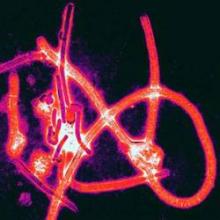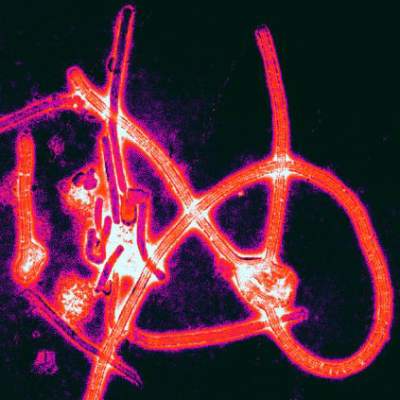User login
A second health care worker infected with Ebola will be transferred to Emory University Hospital in Atlanta for care, according to the U.S. Department of Health and Human Services and the Centers for Disease Control and Prevention.
The first health care worker to be infected, nurse Nina Pham, remains at Texas Health Presbyterian in Dallas and is in good condition, top officials from both agencies said in a joint press conference Oct. 15.
The second health care worker, also said to be a nurse, was isolated in the morning of Oct. 14 and was diagnosed in preliminary testing that night. Officials revealed that she had traveled on a commercial airline Oct. 13 from Ohio to Dallas. The CDC said it was working with the airline to notify fellow passengers.
Facing increasing criticism over poor preparedness at Texas Health Presbyterian and concern that only certain U.S. hospitals may be ready to treat Ebola patients safely, CDC director Tom Frieden told reporters that “we’ll assess each day whether this is the right place” for Ms. Pham or whether she would be moved as well.
Both nurses had contact with Thomas Eric Duncan, the first patient in the United States to be diagnosed with Ebola, during times when the patient “had extensive production of body fluids because of vomiting and diarrhea,” Dr. Frieden said. Mr. Duncan died last week at Texas Health Presbyterian.
Dr. Frieden acknowledged the possibility or even likelihood of more Ebola cases “in the coming days” among the 76 health care workers at Texas Health Presbyterian who had been exposed to Mr. Duncan or his blood during his illness.
In the early days of Mr. Duncan’s care, “a variety of forms of [personal protective equipment] were used at the hospital” and that these were used in “several ways,” some of which may have led to infection, he said.
Three people have been identified as having had close contact with newest Ebola case before her isolation Oct. 14.
Dr. Frieden said that the nurse “should not have been allowed to travel by plane” per CDC guidelines, because she was being monitored as part of a group potentially exposed to Ebola and because she already had a temperature of 99.5°, though she was without further symptoms of illness.
Dr. Frieden said that health officials “think there is an extremely low risk” of other passengers on the plane having been exposed to Ebola.
A second health care worker infected with Ebola will be transferred to Emory University Hospital in Atlanta for care, according to the U.S. Department of Health and Human Services and the Centers for Disease Control and Prevention.
The first health care worker to be infected, nurse Nina Pham, remains at Texas Health Presbyterian in Dallas and is in good condition, top officials from both agencies said in a joint press conference Oct. 15.
The second health care worker, also said to be a nurse, was isolated in the morning of Oct. 14 and was diagnosed in preliminary testing that night. Officials revealed that she had traveled on a commercial airline Oct. 13 from Ohio to Dallas. The CDC said it was working with the airline to notify fellow passengers.
Facing increasing criticism over poor preparedness at Texas Health Presbyterian and concern that only certain U.S. hospitals may be ready to treat Ebola patients safely, CDC director Tom Frieden told reporters that “we’ll assess each day whether this is the right place” for Ms. Pham or whether she would be moved as well.
Both nurses had contact with Thomas Eric Duncan, the first patient in the United States to be diagnosed with Ebola, during times when the patient “had extensive production of body fluids because of vomiting and diarrhea,” Dr. Frieden said. Mr. Duncan died last week at Texas Health Presbyterian.
Dr. Frieden acknowledged the possibility or even likelihood of more Ebola cases “in the coming days” among the 76 health care workers at Texas Health Presbyterian who had been exposed to Mr. Duncan or his blood during his illness.
In the early days of Mr. Duncan’s care, “a variety of forms of [personal protective equipment] were used at the hospital” and that these were used in “several ways,” some of which may have led to infection, he said.
Three people have been identified as having had close contact with newest Ebola case before her isolation Oct. 14.
Dr. Frieden said that the nurse “should not have been allowed to travel by plane” per CDC guidelines, because she was being monitored as part of a group potentially exposed to Ebola and because she already had a temperature of 99.5°, though she was without further symptoms of illness.
Dr. Frieden said that health officials “think there is an extremely low risk” of other passengers on the plane having been exposed to Ebola.
A second health care worker infected with Ebola will be transferred to Emory University Hospital in Atlanta for care, according to the U.S. Department of Health and Human Services and the Centers for Disease Control and Prevention.
The first health care worker to be infected, nurse Nina Pham, remains at Texas Health Presbyterian in Dallas and is in good condition, top officials from both agencies said in a joint press conference Oct. 15.
The second health care worker, also said to be a nurse, was isolated in the morning of Oct. 14 and was diagnosed in preliminary testing that night. Officials revealed that she had traveled on a commercial airline Oct. 13 from Ohio to Dallas. The CDC said it was working with the airline to notify fellow passengers.
Facing increasing criticism over poor preparedness at Texas Health Presbyterian and concern that only certain U.S. hospitals may be ready to treat Ebola patients safely, CDC director Tom Frieden told reporters that “we’ll assess each day whether this is the right place” for Ms. Pham or whether she would be moved as well.
Both nurses had contact with Thomas Eric Duncan, the first patient in the United States to be diagnosed with Ebola, during times when the patient “had extensive production of body fluids because of vomiting and diarrhea,” Dr. Frieden said. Mr. Duncan died last week at Texas Health Presbyterian.
Dr. Frieden acknowledged the possibility or even likelihood of more Ebola cases “in the coming days” among the 76 health care workers at Texas Health Presbyterian who had been exposed to Mr. Duncan or his blood during his illness.
In the early days of Mr. Duncan’s care, “a variety of forms of [personal protective equipment] were used at the hospital” and that these were used in “several ways,” some of which may have led to infection, he said.
Three people have been identified as having had close contact with newest Ebola case before her isolation Oct. 14.
Dr. Frieden said that the nurse “should not have been allowed to travel by plane” per CDC guidelines, because she was being monitored as part of a group potentially exposed to Ebola and because she already had a temperature of 99.5°, though she was without further symptoms of illness.
Dr. Frieden said that health officials “think there is an extremely low risk” of other passengers on the plane having been exposed to Ebola.
FROM A CDC TELEBRIEFING

